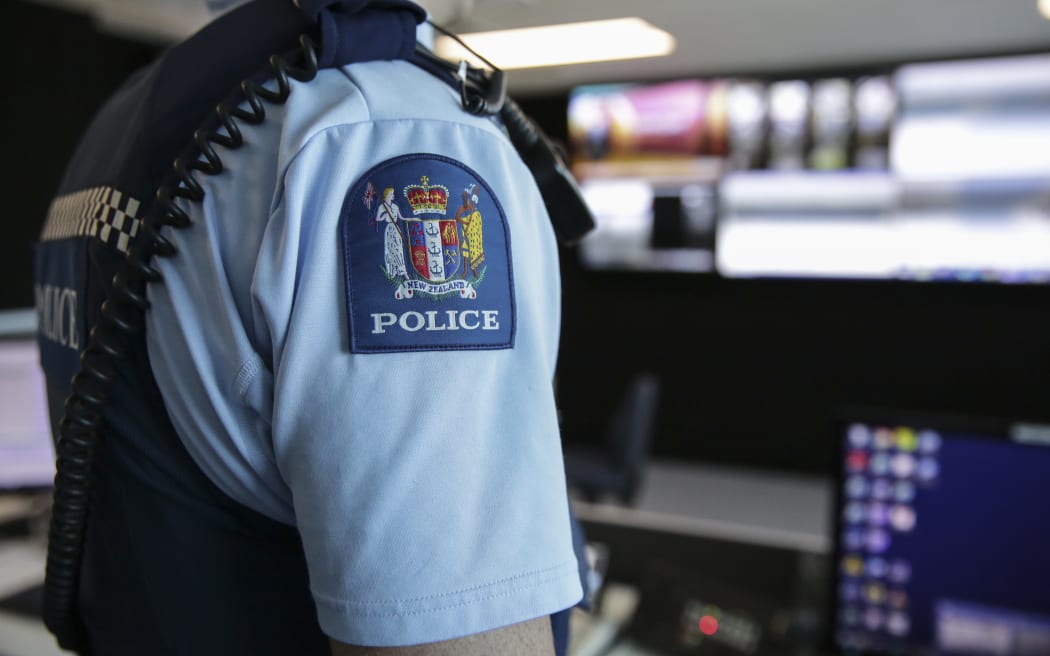
File photo. Photo: Richard Tindiller
Police have dropped the replacement of a communications system vital to deploying patrol cars and fire trucks.
After Cyclone Gabrielle, Cabinet backed a replacement of the ageing deployment system, called CARD, but failed to fund it in the May Budget.
This left just one leg of a $1.4 billion upgrade to emergency communications still standing - the Public Safety Network of new radio, cell and pager comms - but it cannot function without the deployment system.
CARD tracks where police cars and fire trucks go and what they do, but will run out of technical support in 2025.
Police began looking two years ago for "mission critical" software to replace it, not just for police and Fire and Emergency (FENZ), but for ambulance services too.
"Without the system, you don't get any cars out," a source familiar with CARD said.
A police ministerial briefing in June revealed the U-turn, and that emergency services would have to find workarounds.
They would "investigate potential tactical options that may be more affordable in the near term to mitigate risks and improve service delivery", it said.
"This work may identify opportunities that are more affordable."
CARD was credited with "keeping the death toll relatively low" in the 2011 Christchurch earthquake, sharing a flood of calls around the three main communications centres.
However, it was "not ideal" in how it linked responders or who could access it, and its consistency and connectivity needed improving, according to an independent assessment done between the Auckland Anniversary floods and Gabrielle.
FENZ has its comms centres inside police centres because of the CARD link, with police insisting on this for network security reasons.
However, how emergency communications work between services was a persistent problem.
During Cyclone Gabrielle in February, 111 systems failed and responders' cellphones were down due to power outages in the North Island, even as people made desperate calls for help perched on roofs or trapped in cars.
A FENZ situation report from the day said: "Wairoa has been cut off and have no cell, internet or radio comms," adding in capitals: "THEY NEED HELOS TO PULL PEOPLE OUT OF AREAS TO MOVE THEM TO EVAC CENTRES."
Elsewhere, it said: "Limited to no ability for people to call 111 in [Tai Rāwhiti]. Growing concern about the fire radio towers."
"Paging network... currently this is the only form of responding appliances in Gisborne... The paging network is operational across Hawke's Bay and Tai Rāwhiti, our issue is our people are no longer carrying pagers due to the popularity of alternate solutions."
The Public Safety Network aims to fix much of this. Its rollout between 2023 and 2026 will cost $1.4b over a decade and has received a lot more attention than CARD.
It revolves around digital radio: New Zealand's geography and threats to power supply count against relying too much on cell phones. The UK has taken the cellular route, and its project is seven years behind and £6 billion (NZ$12b) over budget.
Police were already facing unavoidably big bills to upgrade IT in core operations.
But CARD is not a nice-to-have. A police tender in 2021 about it said: "The increasing demand for the provision of a safe working environment for our people means that we require modern communications and incident management capability to deliver operating missions quickly, effectively, and safely whilst responding to emergency and non-emergency incidents."
An assessment in February of CARD, done for Search and Rescue, said police were looking at new tech "to improve connectivity and consistency between [emergency services] ... improve access to other government and non-government organisations that support emergency service activities, and improve access for the public to emergency services".
The June ministerial briefing noted that without a replacement, other ways to improve interoperability and digital information-sharing would likely become the priorities.
In a statement, police suggested they had not given up: "The existing CARD systems are currently still supported, upgraded and maintained.
"However, the current system is highly customised, and ensuring it's future-proofed and able to properly integrate across other emergency services, is why potential investment remains under active consideration."
The cost of a replacement was unclear.
The government chief digital officer said it had not risk-assessed the CARD replacement project.
Hato Hone St John, Wellington Free Ambulance and Te Whatu Ora's ambulance team have had struggles with their own, separate computer-aided dispatch systems.
Te Whatu Ora said these systems would be maintained and the services were not independently pursuing a replacement for CARD.
The existing system's interface to ambulances was "not ideal", said a report in February for NZ Search and Rescue, that outlined complex and confusing communications systems between police and search organisations.
FENZ, in a statement on Monday, said: "The project would have improved a complex, multifaceted system, and communications between emergency services, but FENZ's ability to respond to our communities' needs are not impacted by this project halting.
"All parties remain engaged with a working group seeking opportunities to improve information sharing and frontline personnel safety."
The office of the Minister for Emergency Management referred RNZ's queries to police.
In a statement, Police Minister Ginny Andersen said: "The decision not to fund the Emergency Services Communications and Resource Deployment (CARD) Replacement Project was made in the context of the tight fiscal constraints and competing pressures of Budget 2023. Funding for any future replacement will need to be considered by the incoming police minister."
Andersen's office said any suggestion the Public Safety Network would be directly affected was incorrect.


